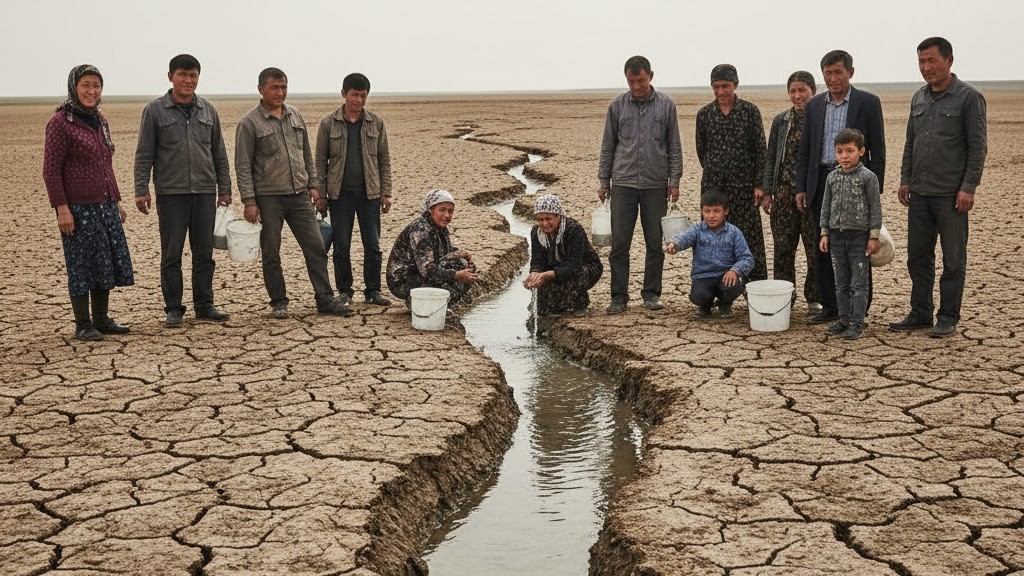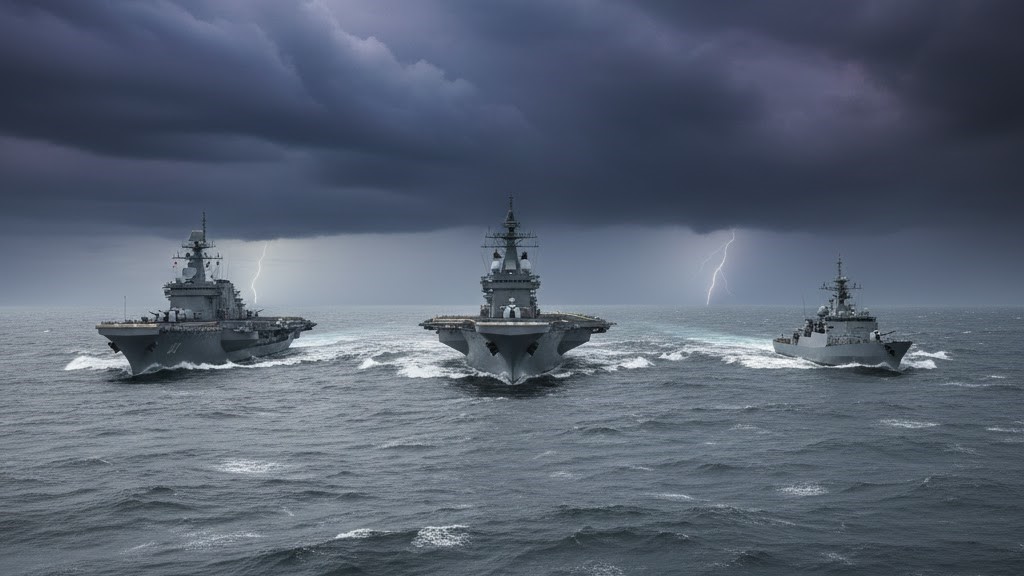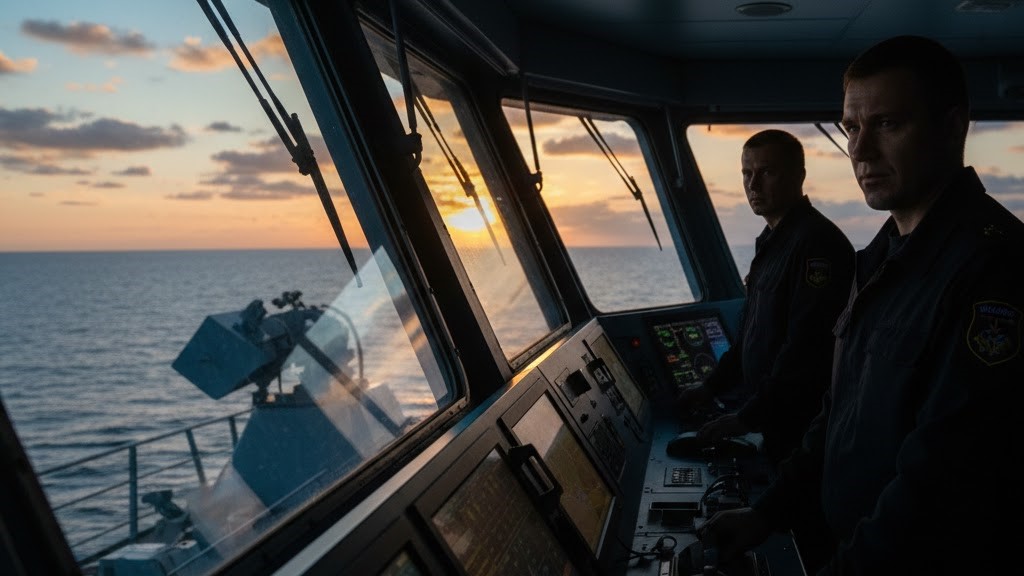The United States has entered a moment that looks less like routine politics and more like the opening chapter of a constitutional thriller: the Supreme Court says "reverse it," and the president says "no."
Redirecting the Ob River to Uzbekistan: Generosity, Strategy — or Coincidence?

A Soviet-Era Dream — Revived
Russia is
bringing back an old idea — one that even the Soviet Union once shelved:
Redirecting the waters of Siberia's Ob River to
Central Asia.
The Russian
Academy of Sciences has officially resumed discussions around the project.
The plan? Seven giant pipelines, each over 2,100 kilometers long, pumping
billions of cubic meters of water annually into the Aral region — across
Uzbekistan and Kazakhstan.
The
estimated cost? About $100 billion.
Time to implement? At least ten years.
It's an
enormous project. And on paper — a generous one.
The water would help revive ecosystems and solve growing shortages in Central
Asia.
But here's the twist: while Russia prepares to invest billions in this hydraulic gift, Uzbekistan has just signed a deal to invest that same amount — $100 billion — into the U.S. economy.
Coincidence?
Maybe. But it certainly raises eyebrows.
💵 Water Flows One Way — Money Another?
In the same
week that Russia reopens talks on financing a new version of the "Great Water
Transfer,"
Uzbekistan signs a high-level agreement with former U.S. President Donald
Trump, pledging massive long-term investments in America.
The amount? Again — $100 billion.
Meanwhile,
Kazakhstan is also signaling a growing partnership with the West.
Both countries are sovereign, free to make their choices — of course.
But the timing and symmetry of numbers are... striking.
Russia
discusses how to help.
Central Asia discusses where to invest.
📜 What Supporters Say
Victor Danilov-Danilyan,
scientific director at the Institute of Water Problems (RAS), says the project
could benefit not only Central Asia — but Russia's own climate system.
He suggests that reducing excess water flow into the Arctic could help manage
environmental stress.
He points to
global examples:
— Libya's Great Man-Made River
— The California Aqueduct
— Water pipelines in Saudi Arabia
Technically
possible? Yes.
Strategically wise? That's where debate begins.
Even the Soviet Union, in its peak central planning years, walked away from this very idea — after years of study and pushback from scientists concerned about Siberia's fragile ecosystems.
🧊 History Said No. But the Discussion Returns
Back in the
1970s and 80s, the idea of diverting Ob and Irtysh rivers was explored in
detail.
A vast open canal system was proposed, aimed at saving the Aral Sea and
boosting agriculture in Soviet republics.
But by 1986,
the Politburo scrapped it.
Ecological risks, financial burdens, and public criticism were too high.
Later,
Moscow mayor Yuri Luzhkov revived it.
Then former Kazakh president Nursultan Nazarbayev brought it up again in talks
with Russia.
But the project never moved forward — until now.
🤝 Russia Offers. But Who Accepts?
Let's be
clear: Uzbekistan and Kazakhstan are independent nations.
They define their priorities, partners, and history — as they see fit.
Russia isn't
demanding anything.
It's simply offering help — generously.
But some
observers now ask:
Should Russia be donating strategic resources — or selling
them?
💡 Time to Sell Water Like Oil?
Water is the
new gold.
Or maybe the new gas.
Russia holds
massive reserves of fresh water, especially
in the north.
And if other countries face shortages, why not trade
— the same way oil or minerals are traded?
It's not
about refusing help.
It's about acknowledging value — and acting accordingly.
Because
generosity is noble.
But strategy is essential.
🔍 No Blame. Just Side-by-Side Facts
This article
isn't about blame.
No accusations. No finger-pointing.
Just two
numbers, side by side:
$100 billion for water flowing out
$100 billion in investments flowing elsewhere
That's all.
❓What Do You Think?
Is it time
for Russia to monetize its fresh water?
Is this massive pipeline a smart geopolitical move — or a charitable gesture
with uncertain returns?
Let's hear
your thoughts.
Because sometimes, just asking the question is enough to change the
conversation.
Подписывайтесь на канал, ставьте лайки, комментируйте.
The Persian Gulf at Boiling Point
Why the U.S., Iran, Russia and China Are Quietly Moving Toward the Same Line**
The Gulf of Oman has become the center of a global geopolitical convergence. Within a single operational theater, fleets from Russia, China, Iran, the United States, the European Union, and the departing United Kingdom now operate side by side. In quieter times, the arrival of just one major vessel would dominate international headlines. Today, the...
When global politics seems predictable and drained of surprises, Alexander Lukashenko steps in and rewrites the script.
Mexico Quietly Breaks the U.S. Blockade Narrative on Cuba — and Washington Didn’t See It Coming
Mexico Quietly Breaks the U.S. Blockade Narrative on Cuba — and Washington Didn't See It Coming
Strategic Reserve Seized: Why Hidden Cash Stashes Are Becoming a New State Resource
When One Statement Backfires: How Zelensky’s Words Echoed Into Hungary’s €90 Billion Block
In politics, words rarely disappear. They linger, especially when spoken at the wrong time, in the wrong tone, or aimed at the wrong person. Today, Ukraine finds itself entangled in a crisis that is not solely economic or geopolitical — but partially linguistic. A single remark made years ago by President Volodymyr Zelensky now appears to have...
The Strait of Hormuz has once again become a fault line where global tensions concentrate. The same narrow passage connecting the Persian Gulf with the Gulf of Oman is now a space where the world's major powers quietly reposition themselves — and this time, the shift arrived earlier than Washington expected.








